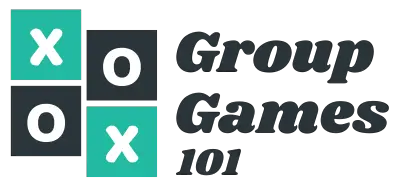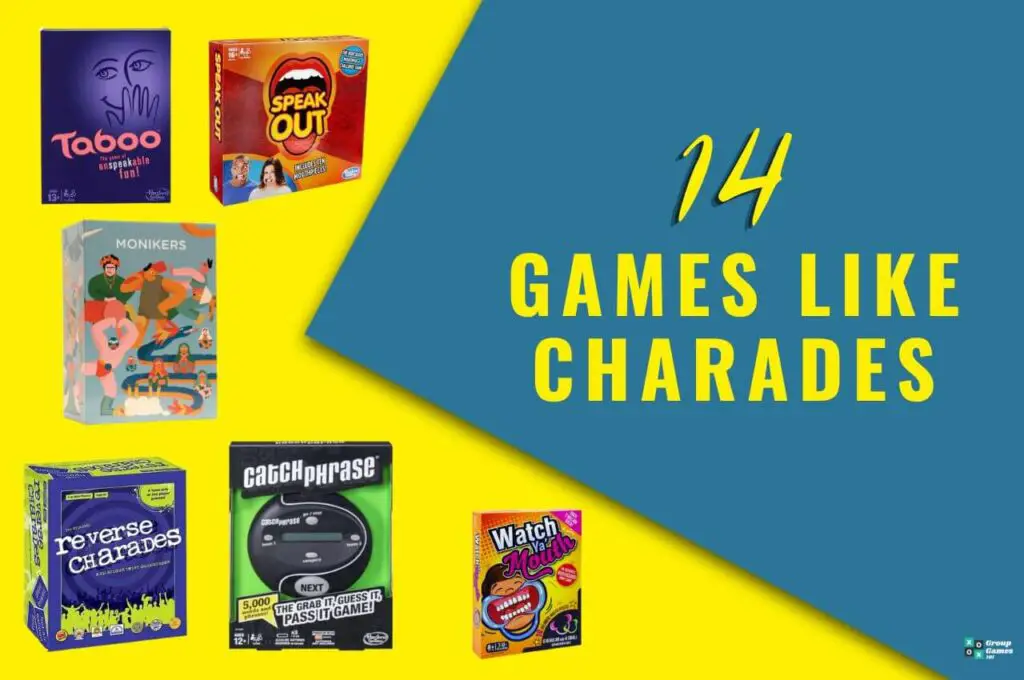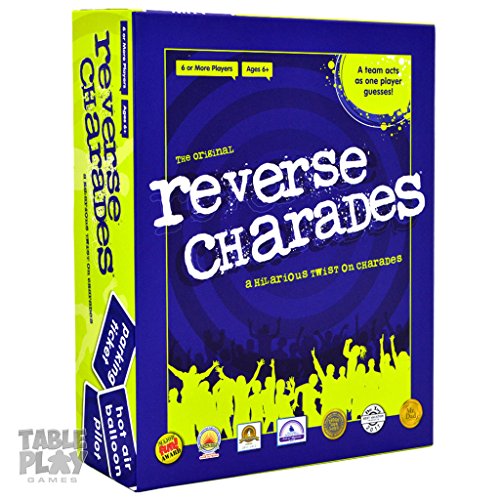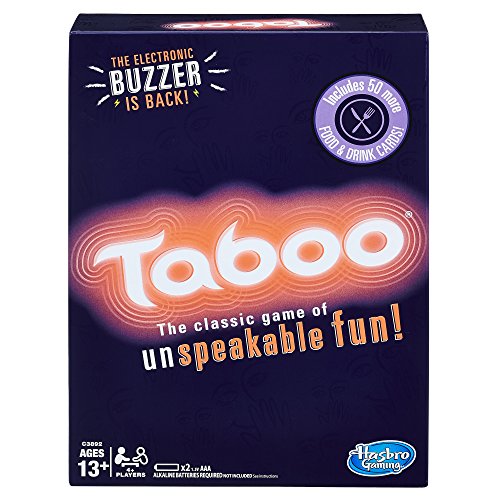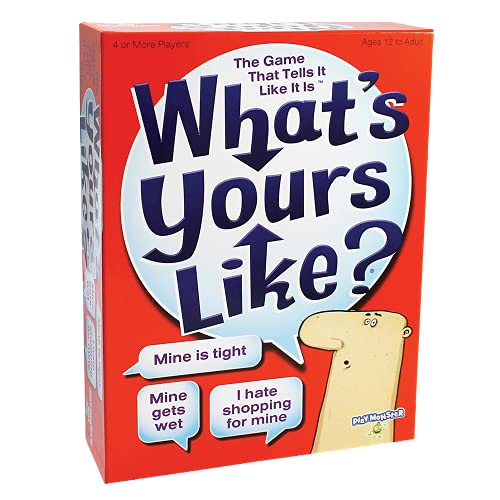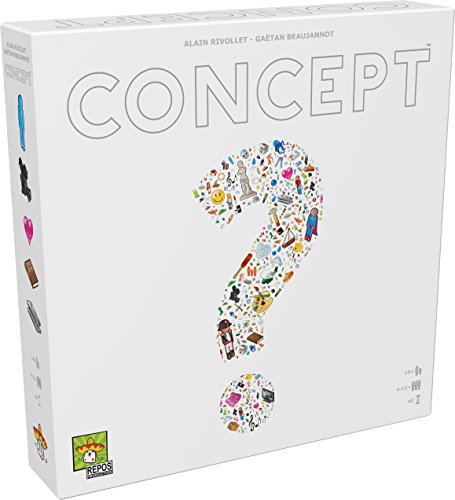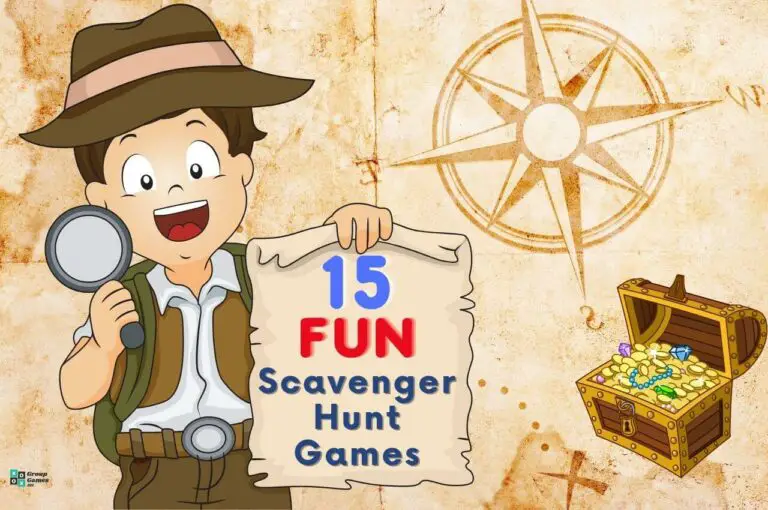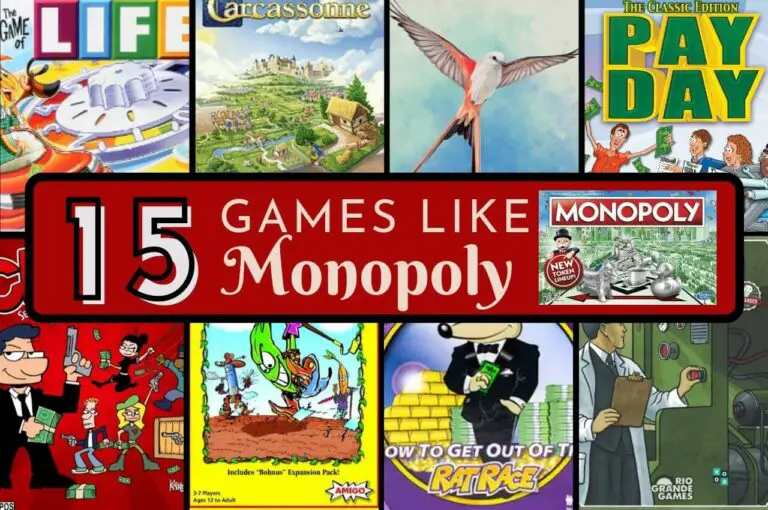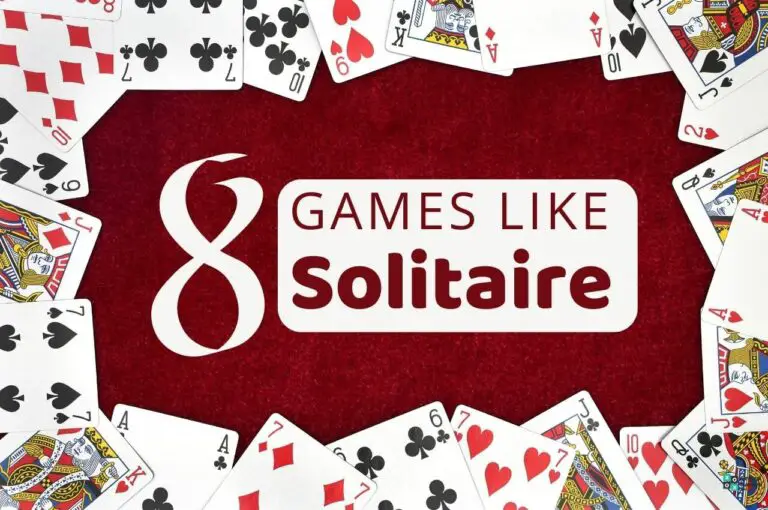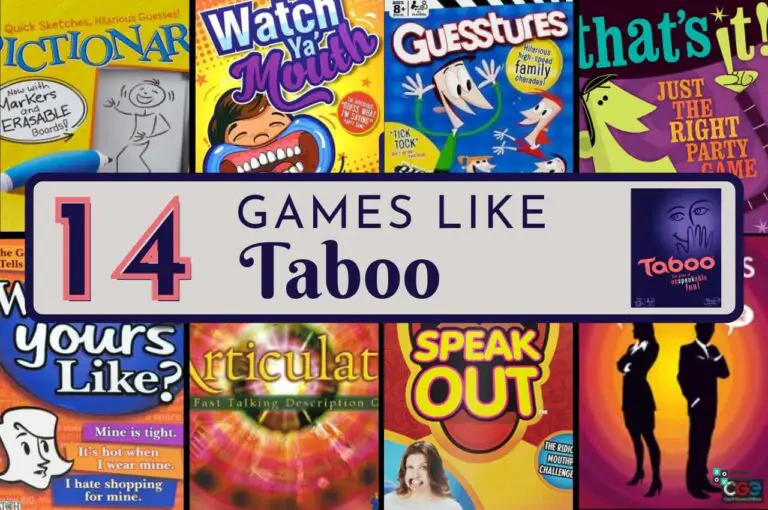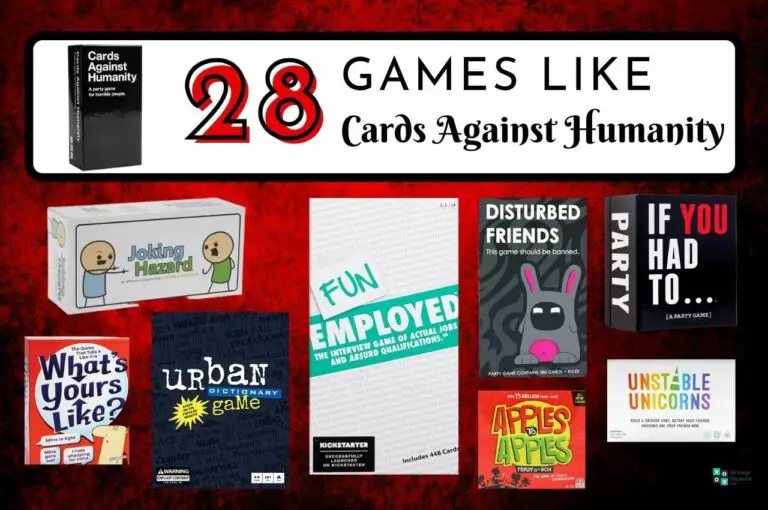Charades is one of the best party games you can bust out on games night, but if not everyone knows the rules, you should consider a game like charades instead.
The key to playing charades is to attempt to act out or describe a phrase without explicitly stating what the phrase is – the challenge is to be creative to allow teammates to correctly guess.
Allegedly originating in 16th Century France, Charades is timeless as no equipment is needed to play, although having a set that explains the rules to alternative games is helpful as well.
So dive into our list of 14 different games like Charades that you can play when you next have people over for games night.
14 Games like Charades
SPEAK OUT
Players: 4+ players.
Playing Time: 15 – 30 minutes.
Age: Ages 8+ or 16+ for the adult version.
Game Type: Party Games.
Publisher(s): Hasbro.
Game Overview:
Speak Out is the game in which players get into pairs and must put in a mouth guard, which impairs speech. Teams are given a word that their partner must work out, with players using gestures to help their teammate work out what is being said. Whichever team correctly guesses the correct word wins.
RELATED: Speak Out Rules.
RELATED VIDEO: Speak Out Gameplay.
WATCH YA MOUTH
Players: 4+ players.
Playing Time: 15 minutes.
Age: Ages 4+.
Game Type: Party Game.
Publisher(s): Self-published.
Game Overview:
Like, Speak Out, Watch Ya Mouth is also about placing a mouth-guard in a player’s mouth to limit their speech abilities as they read out words for their team to decipher. Watch Ya Mouth has different game modes that are included within the game, which sets it apart from its competition.
RELATED: Watch Ya Mouth rules.
MONIKERS
Players: 4 – 16+.
Playing Time: 30 – 60 minutes.
Age: Ages 17+.
Game Type: Card Game, Party Game.
Publisher(s): Self-published.
Game Overview:
Divide up your group into even teams; the goal in Monikers is for teams to work together to guess as many statements based on the descriptions of the cards written on cards as possible. A score is attached to each card which denotes the value of getting the correct answer.
Whichever team has the most points once everyone has had a turn at reading the cards wins.
RELATED: Monikers game rules.
RELATED VIDEO: Monikers video tutorial.
CATCH PHRASE
Players: 4+ players.
Playing Time: 15 minutes.
Age: Ages 8+.
Game Type: Party Game.
Publisher(s): Hasbro.
Game Overview:
Make sure you have enough players for 2 even teams. Teams strive to become the first team to reach 7 points. Catch Phrase has different categories in which players need to correctly guess something that fits within the category and passes it to someone on the other team.
If the player holding the device cannot guess a correct answer within 15 seconds, then the other team gains a point.
RELATED: Catch Phrase rules.
RELATED VIDEO: How to play Catch Phrase.
REVERSE CHARADES
Players: 6+ players.
Playing Time: 20 – 60 minutes.
Age: Ages 6+.
Game Type: Party Game.
Publisher(s): USAOPOLY.
Game Overview:
Just like charades, but just like you can imagine, the key difference is that Reverse Charades get played the opposite way round. A player draws a card but doesn’t look at it; instead, they show the remaining players what is written on the card. The other players must act out the scene written on the card for the player to guess.
If the player correctly guesses what is written on the card, they gain 1 point. The player with the most points at the end of gameplay wins.
RELATED: Reverse Charades rules
TABOO
Players: 4+ players.
Playing Time: 15 – 20 minutes.
Age: Ages 13+.
Game Type: Card Games, Party Games.
Publisher(s): Hasbro.
Game Overview:
Taboo is the guessing game where you race against time as well as the opposing team to win. In teams, players need to describe the word on the card to teammates but cannot say the words written on the card as they are forbidden. If one of these words gets uttered, the turn is over without scoring any points. The most points at the end win the game.
RELATED: Taboo game rules | 14 games like Taboo
RELATED VIDEO: How to play Taboo.
HEDBANZ
Players: 3 – 6 players.
Playing Time: 10 – 30 minutes.
Age: Ages 6+.
Game Type: Card Games, Party Games
Publisher(s): Spin Master.
Game Overview:
Start Hedbanz by giving each player a headband that has a card attached to the front that the player wearing the headgear cannot see. Players need to take turns asking the group questions to narrow down what is written on the card.
The player who guesses their card with the least number of questions gains a point. The most points at the end of the game win.
RELATED: Hedbanz rules.
RELATED VIDEO: How to play Hedbanz.
MAD GAB
Players: 2 – 12 players.
Playing Time: 20 – 30 minutes.
Age: Ages 12+.
Game Type: Card Games, Party Games
Publisher(s): Mattel.
Game Overview:
Mad Gab is the phrase guessing game where players need to work out what the popular phrase is based on a nonsensical sentence that sounds like a hidden phrase. Pick 2 teams of equal value, and take turns guessing the phrase. Each correct guess gains the team a point, and the first team to reach 30 points wins the game.
RELATED: Mad Gab rules.
WHAT’S YOURS LIKE?
Players: 4+ players.
Playing Time: 20 – 40 minutes.
Age: Ages 12+.
Game Type: Card Games, Party Games.
Publisher(s): Playmonster.
Game Overview:
Players pick a card that has an object on it; other players need to attempt to guess what is written on the card by asking vague questions. The player who drew the card also gives vague hints. Whoever manages to correctly guess what’s on the card wins a point, and whoever has the most points at the end of What’s Yours Like? wins the game.
RELATED: What’s Yours Like rules
PICTIONARY
Players: 2 – 4 players (more if played in teams).
Playing Time: 30 minutes.
Age: Ages 8+.
Game Type: Party Games.
Publisher(s): Mattel.
Game Overview:
Like charades, except for people who prefer drawing, in Pictionary, players are designated something to draw and then pass their drawing on to the next player. That player then needs to guess what was drawn and hands over their guess to the next player along. That player then draws the previous player’s guess.
This continues until the drawing returns to its original player. If the last guess matches what was originally on the card, the player earns a point. The player with the greatest number of points wins the game.
RELATED: Pictionary rules.
GUESSTURES
Players: 4+ players.
Playing Time: 20 – 60 minutes.
Age: Ages 8+.
Game Type: Party, Family.
Publisher(s): Hasbro.
Game Overview:
Guesstures is charades, except with a timer that swallows the card if players cannot correctly guess the answer. Players pick 1 of 3 difficulties and then need to use classic charades gestures to help their team guess the answer. Best played in teams, the team with the most correct answers wins the game.
RELATED: Guesstures rules
CRANIUM
Players: 4 – 16 players.
Playing Time: 30 – 60 minutes.
Age: Ages 13+.
Game Type: Party.
Publisher(s): Hasbro.
Game Overview:
Mixing trivia with charades, Cranium is a game with 4 different categories that players must navigate so they can move along the gameboard. Points get awarded throughout based on how well each player does in each section. Whoever has the most points across all rounds is the Cranium champion.
RELATED: Cranium Cadoo Rules
ARTICULATE
Players: 4 players.
Playing Time: 30 – 60 minutes.
Age: Ages 12+.
Game Type: Board Games, Party Games.
Publisher(s): TOMY.
Game Overview:
Articulate is a guessing game that involves different categories. Players need to draw a card and then need to quickly describe what is on the card to other players within a set time. Correct answers mean that players can move up the board. The player who gets to the end of the gameboard first wins the game.
CONCEPT
Players: 4+ players.
Playing Time: 30 – 60 minutes.
Age: Ages 10+.
Game Type: Board Games, Party Games.
Publisher(s): Repos Production.
Game Overview:
Played similar to charades as players work in teams of 2 to work out the phrase without speaking to one another. The concept requires players to combine different icons together to make the phrase required to gain 2 victory points. The team who has the most victory points at the end of the game wins.
